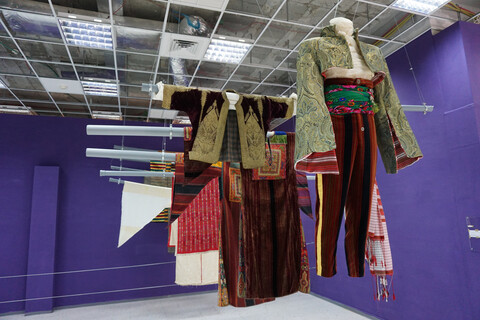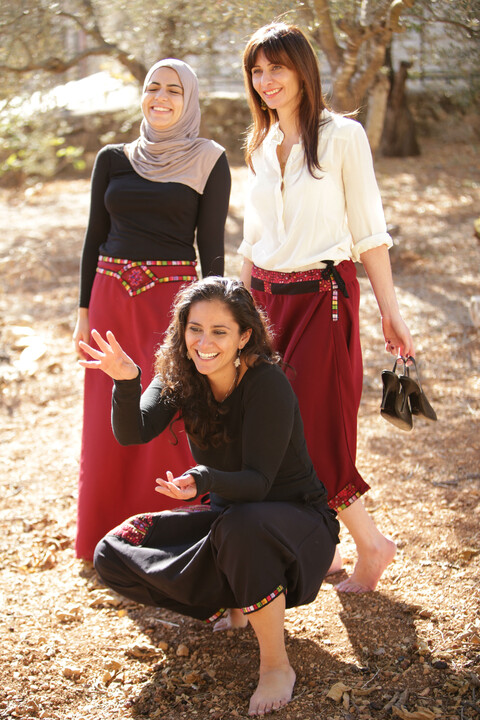The Electronic Intifada 29 May 2018
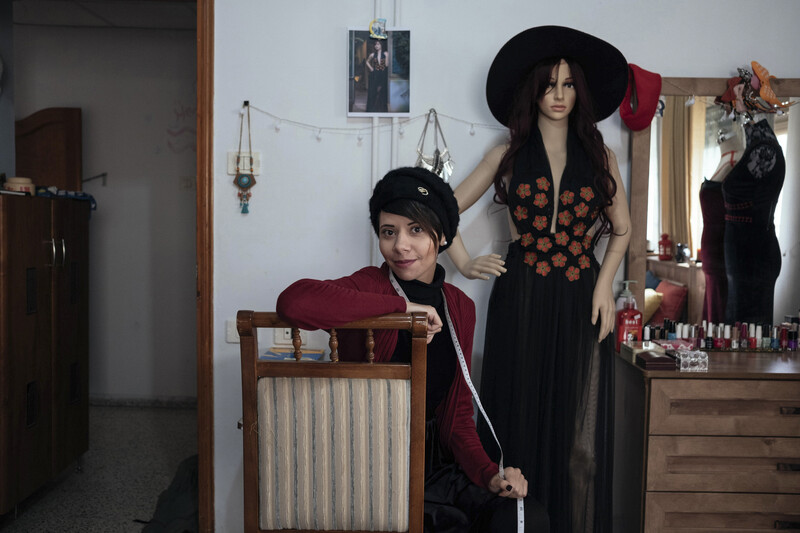
Haya Khalid in her bedroom which doubles as a design studio.
Haya Khalid currently designs and constructs clothing in a makeshift studio in her bedroom in the occupied West Bank city of Ramallah.
But the 27-year-old aspires to see her fashion worn around the world.
Haya grew up in Nur Shams camp near the city of Tulkarm, also in the West Bank. Her family is originally from Ijzem village near the coastal city of Haifa. The village was depopulated like hundreds of others around the time of the establishment of the state of Israel in May 1948.
Self-taught, Haya says drawing is “in her blood” and that she has been designing since she was young.
She has a degree in computer engineering from Birzeit University near Ramallah but abandoned the profession after only a few months to pursue her love for fashion.
The designer says her motivation to create a modern Palestinian fashion line came from the “other side of the wall.”
High-end Israeli fashion designers have appropriated traditional Palestinian textiles and motifs into their couture designs.
During Tel Aviv Fashion Week in 2015, an Israeli designer sent models down the runway wearing garments fabricated out of the kuffiyeh – the traditional checkered scarf most famously worn by Yasser Arafat, the late Palestine Liberation Organization leader.
Haya started her own line to take back ownership of Palestinian cultural heritage.
Her brand ReBorn is inspired by the traditional Palestinian dresses worn by her grandmother. Haya’s goal is to make modern fashion pieces drawing from Palestinian heritage by incorporating traditional fabric and Palestinian embroidery into her own contemporary designs.
“As modern Palestinian women, we don’t wear what our grandmothers wore. The traditional dresses are heavy and hot. They would be hard to work in,” she explains.
“In order to make the new generation want to carry on Palestinian clothing traditions, we must make it into a new style.”
Megan Jelinger is an American documentary photographer from Northwest Ohio, currently based Jerusalem.
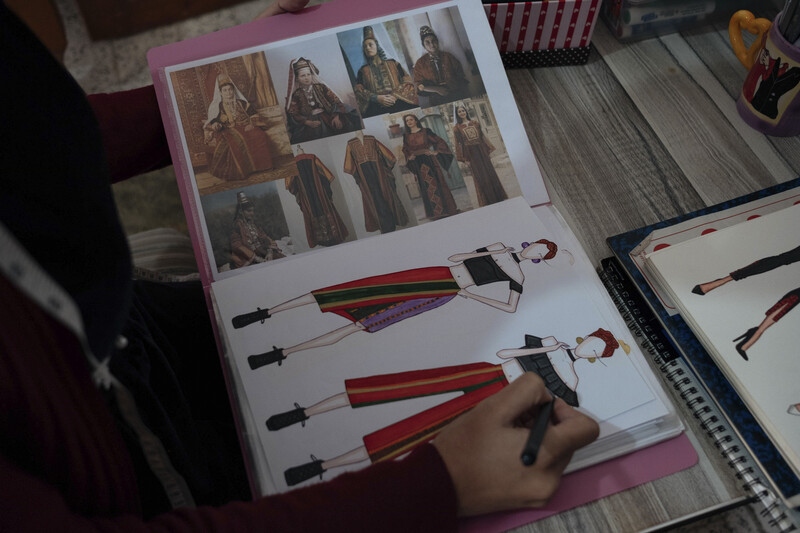
“I take inspiration from the traditional fabric and shape. The modern idea comes from my mind,” Haya says.
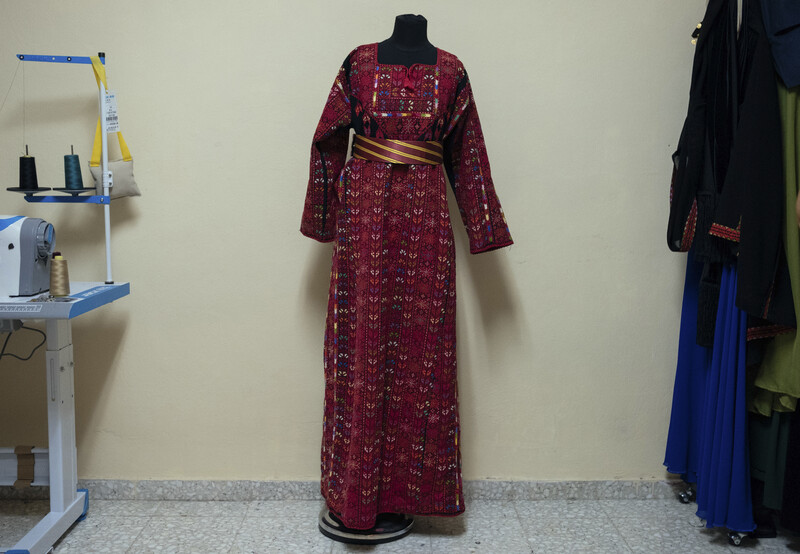
“I used to see my grandma wearing and loving these dresses, then out of nowhere Israel calls them their own,” Haya remarks. Each area of historic Palestine has its own distinct style of traditional dress that some among the older generations still wear. Pictured is a cross-stitch pattern associated with Ramallah.

“I work from my room because I can’t afford a workshop to design dresses at,” Haya explains. “I decided to create a good atmosphere in my room that helps me with my sketches. I fill my room with my favorite furniture, colors, music, accessories, and my artistic paintings.”
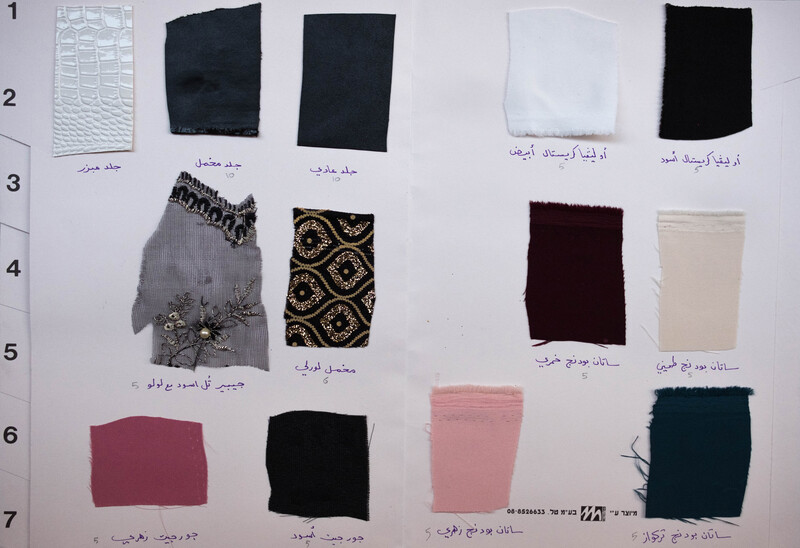
For young fashion designers in the West Bank, options are limited. “The opportunities in Palestine are so rare. Most people prefer to buy factory-made clothes over buying handmade clothes because it’s cheaper,” Haya says.
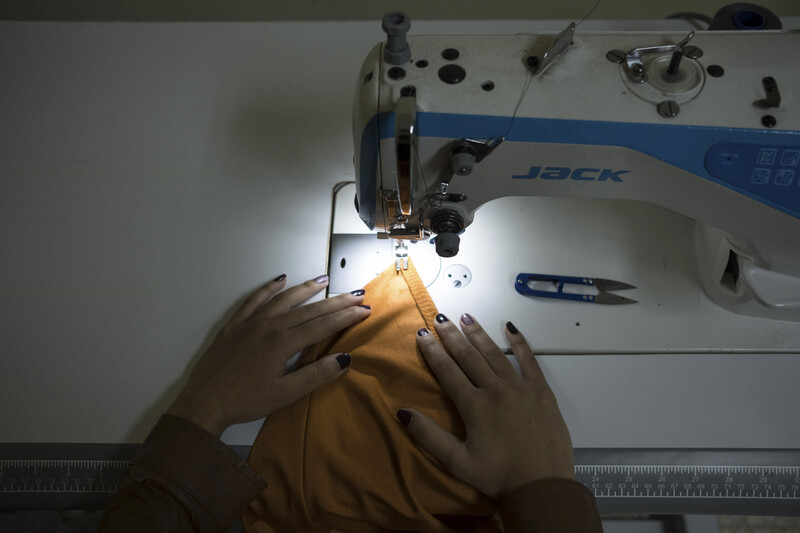
Haya is producing a collection with a grant from the Business Women Forum in Ramallah. She wants to study at Milano Fashion Institute and is applying for scholarships with her new line.
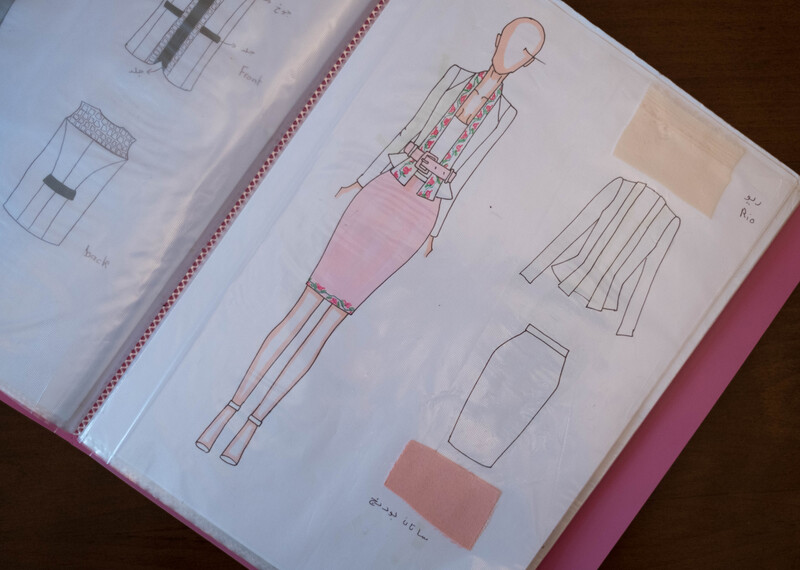
“The main idea behind the design is to reflect the image of the Palestinian woman who is involved in the business world,” Haya explains. “To say that Palestinian women can also work and be a boss, manager, businesswoman, lawyer, or a teacher.”
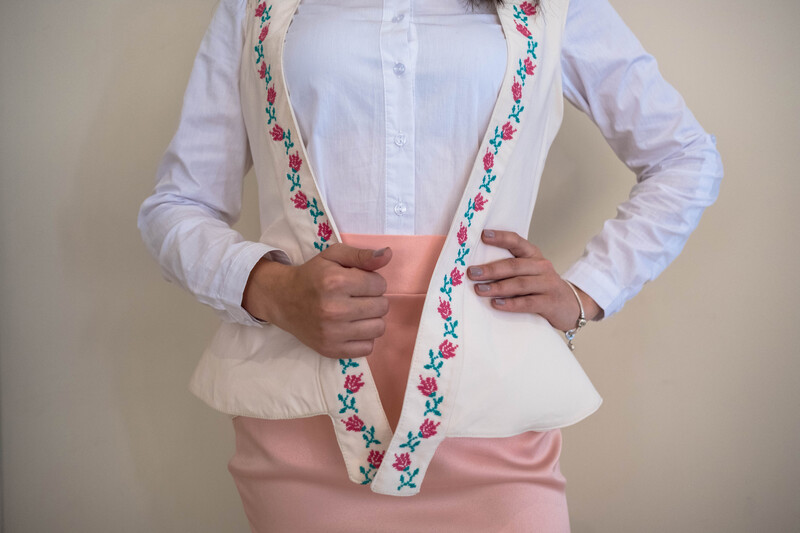
“The skirt and blazer set is the perfect style for a working woman; women around the world prefer this style in their career and jobs,” Haya explains, adding that the design says: “Hey I’m a Palestinian businesswoman.”
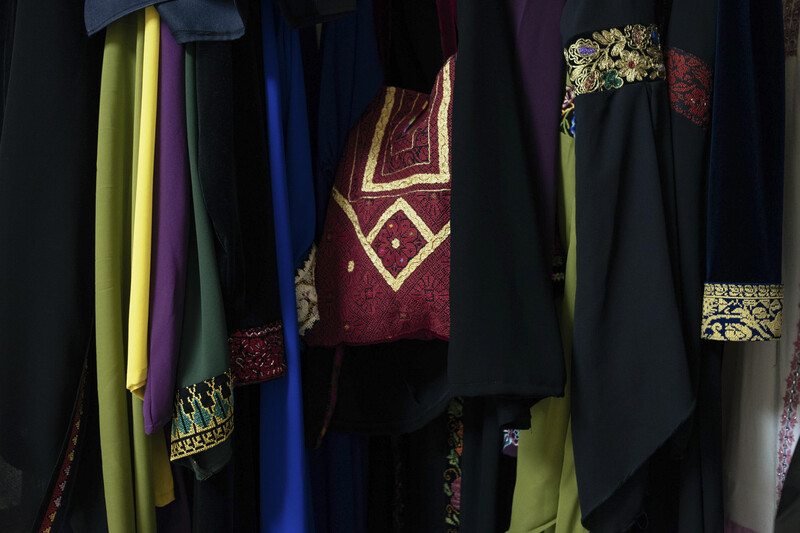
Haya hopes that Palestinian-designed clothing will eventually be just as admired as French lines like Chanel or Dior. Instead of viewing it as cultural appropriation, she says she would be proud to see people wearing Palestinian-designed clothes inspired by traditional garments like the ones seen here.
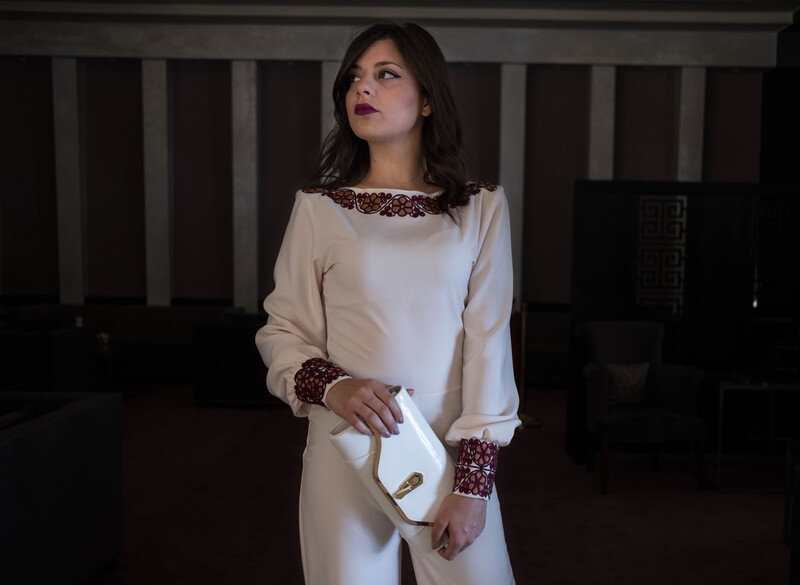
A model wears a modern white jumpsuit during a photoshoot for Haya’s line ReBorn. Haya has sold her work to customers in North America and Europe, using social media to promote her designs. She would like to sell her garments on Amazon and Etsy but says she is prevented from doing so because an Israeli bank account is needed to sell from these sites.
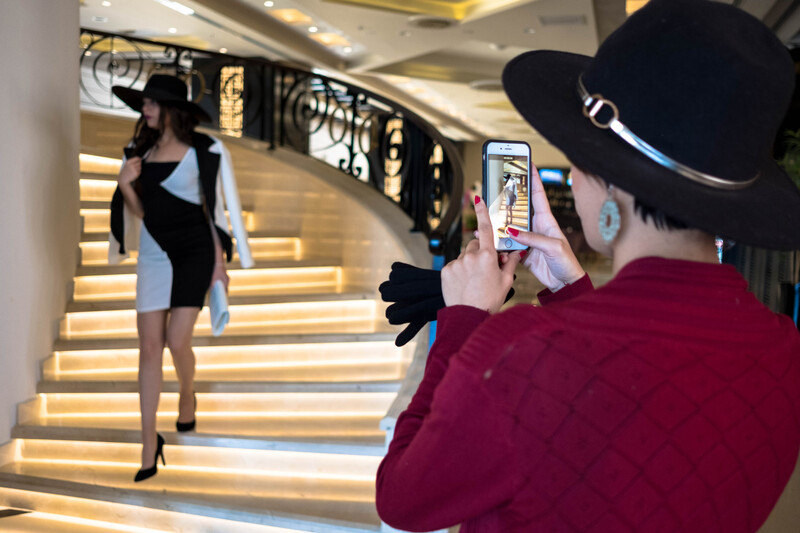
Haya snaps a photo on her cellphone during a photoshoot of her line with a professional photographer. She would like to eventually move to Dubai, following in the footsteps of other Palestinian designers who have gone abroad to launch international careers.

